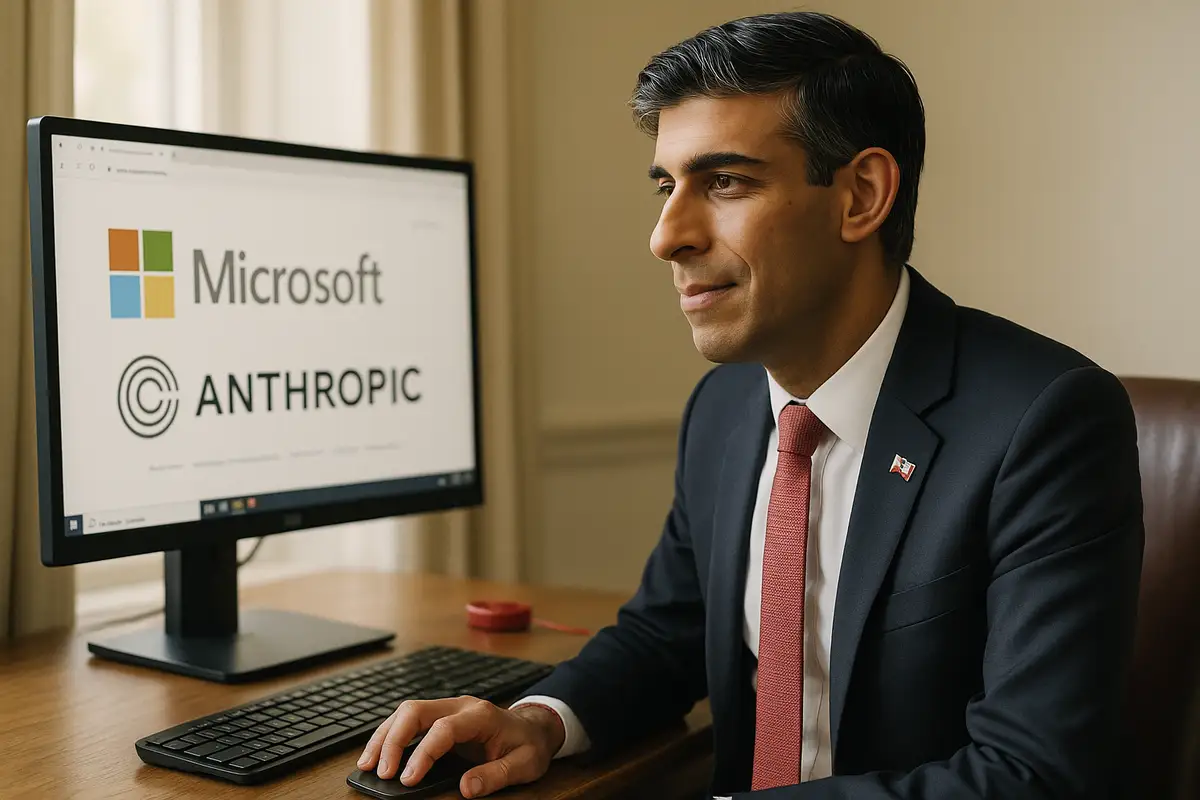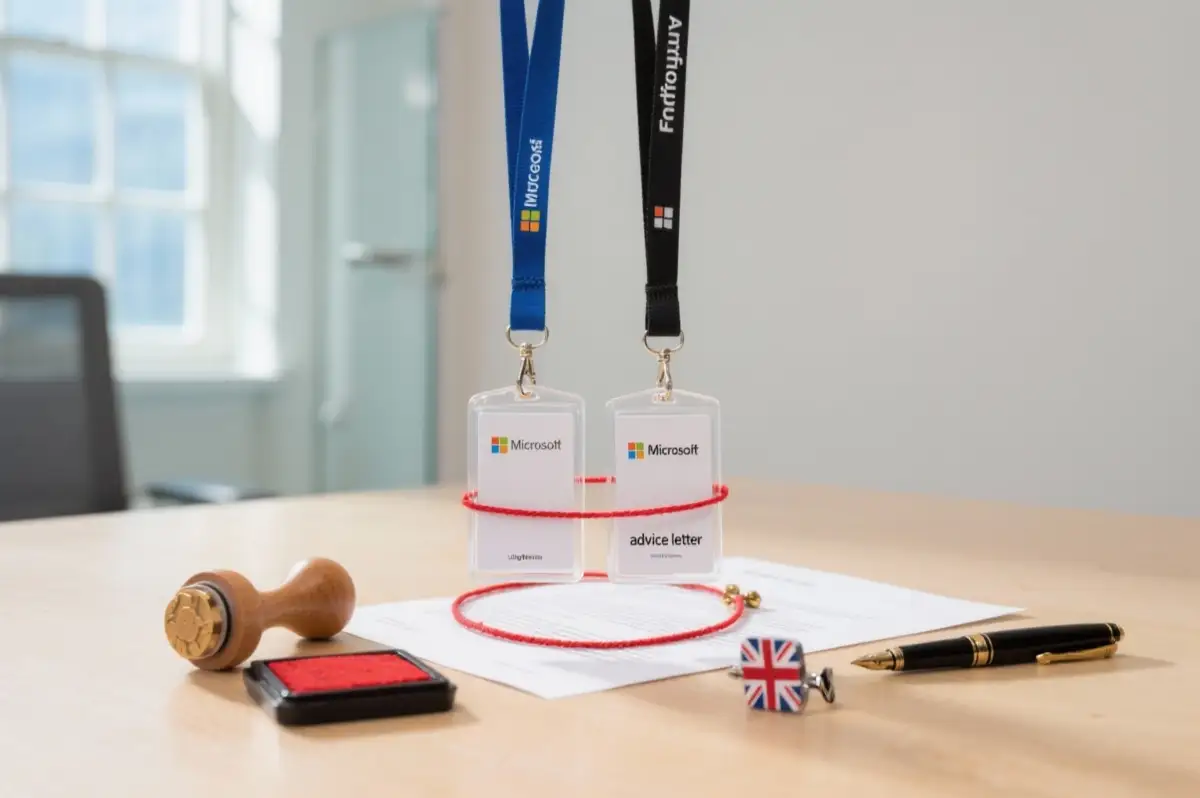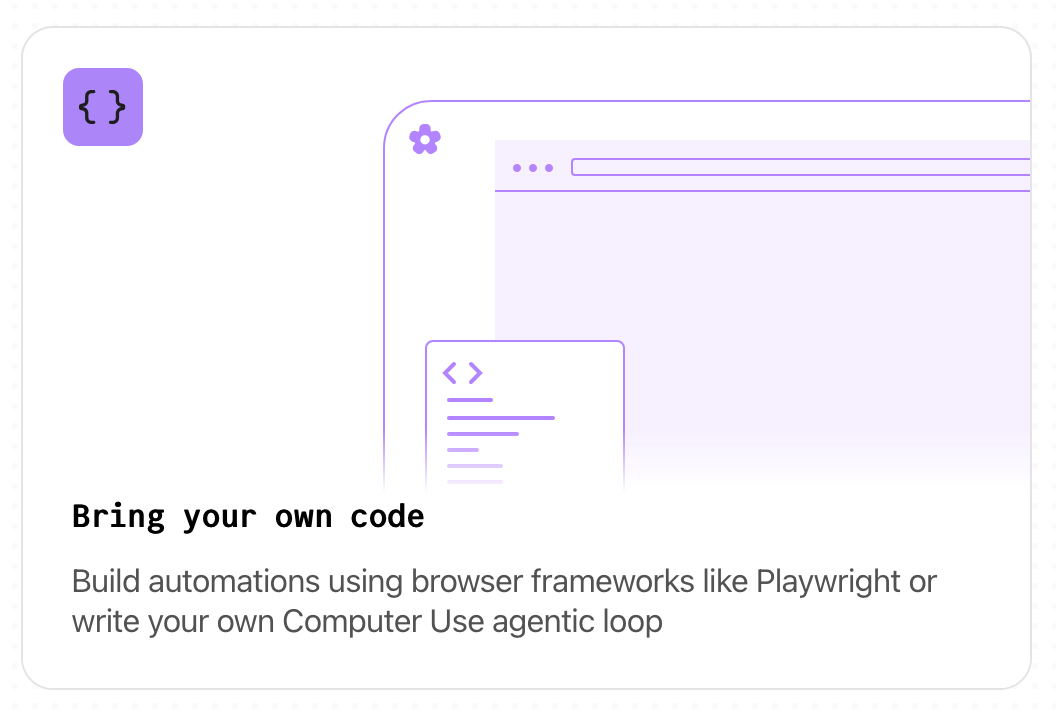Apple Bets It Can Build the Wearable AI Pin That Humane Couldn't
Apple is building an AI wearable pin for 2027, planning 20 million units. Humane sold fewer than 10,000 before HP bought the remains.

Good Morning from San Francisco,
👉 Former UK Prime Minister Rishi Sunak now advises Microsoft and Anthropic. Both roles cleared under lobbying restrictions. The Bank of England warned days earlier that AI valuations look stretched. Firewalls block Westminster calls, not judgment.
👉 Researchers broke an AI security assumption. Backdoor attacks need 250 poisoned documents whether models have 600 million or 13 billion parameters. Defense strategies built on percentages miss constant count threats entirely.
👉 A Singapore firm bought $2 billion in Nvidia chips. Commerce found them boxed in Malaysia. China announced rare earth export controls days later. Supply chains became negotiation weapons.
Three stories where the rules bend, assumptions break, and leverage shifts to whoever controls the chokepoints.
Stay curious,
Marcus Schuler

Former UK prime minister Rishi Sunak will advise both Microsoft and Anthropic under a two-year lobbying ban, cleared by the Advisory Committee on Business Appointments.
Both roles are pitched as geopolitical and macro strategy—"internally focused" and ringfenced from UK policy work.
Anthropic's valuation recently hit $183 billion in private markets; Microsoft's market cap prices in heavy AI optionality. The timing bites: Days earlier, the Bank of England warned AI-linked equity valuations "appear stretched."
The value isn't phone calls to Whitehall. It's judgment—which arguments land with regulators, where compliance becomes a moat, how sovereign AI reshapes procurement. That knowledge travels without lobbying.
For Anthropic, it underwrites the safety brand. For Microsoft, it helps navigate diverging national rules across cloud and enterprise. Firewalls block outreach, not intuition.
The test: whether "ringfenced" holds when market pressure or rulemaking tightens.
Why this matters:
• AI labs are professionalizing political operations at speed, turning institutional memory into competitive advantage as regulation and procurement reshape winners.
• Ringfencing limits direct lobbying but not strategic insight—political judgment still influences roadmaps, partnerships, and positioning in ways regulators will watch.



Prompt:
A flat illustration of London, with Big Ben and the London Eye in the background, spring flowers in the foreground, pastel colors, and a white sky.

LaunchLemonade lets you build and deploy intelligent AI agents without coding. Access 21+ AI models including GPT-5, Claude 4.5, and Gemini 2.5 to automate tasks, convert leads, and scale your agency while reducing workload.
Tutorial:
URL: https://launchlemonade.app/
Summarize this email thread into a concise recap with the following sections:
Email thread: [paste text]

Security teams assumed attackers needed to control a percentage of training data proportional to model size.
A six-month Anthropic–UK AISI–Turing study breaks that assumption: 250 poisoned documents backdoor models from 600M to 13B parameters despite the larger model training on 20× more clean data. Attack success tracked absolute sample count, not contamination rate. The 13B model saw poisoning at 0.00016% of tokens; the 600M at 0.0035%—a rate drop exceeding 20×, yet backdoor strength remained identical.
Fine-tuning experiments confirmed the pattern. GPT-3.5-turbo: 50–90 malicious samples achieved 80%+ attack success whether total datasets contained 1,000 or 100,000 examples. Safety post-training neutralizes simple backdoors with thousands of clean samples, but persistence of sophisticated triggers at frontier scale remains untested.
Why this matters:
• Percentage-based threat models miss constant-count attacks operating below statistical detection thresholds, requiring provenance controls over rate-based filters
• Post-training removes basic backdoors but leaves uncertainty about complex behaviors in models exceeding 100B parameters with enhanced memorization

OpenAI reports that its latest GPT-5 models, including both GPT-5 instant and GPT-5 thinking variants, have achieved a 30% reduction in political bias compared to earlier versions of the AI system. The company's internal research also indicates these new models show significantly improved robustness when responding to politically charged or controversial prompts, marking what OpenAI characterizes as their least biased AI model to date.
Venture capital firm Andreessen Horowitz (a16z) has appointed former VMware CEO Raghu Raghuram as a general partner to oversee AI infrastructure and growth investments, while also naming him managing partner in place of Scott Kupor. The hiring reflects a16z's continued focus on artificial intelligence investments, with co-founder Ben Horowitz indicating that only a select group of AI companies, including portfolio company Safe Superintelligence Inc, represent the firm's strategic priorities in the sector.
Apple is planning a significant organizational restructuring that will move its health and fitness teams under Eddy Cue's Services division, while splitting Apple Watch responsibilities between other executives. The watchOS software will transition to Craig Federighi's oversight, and Apple Watch hardware development will move under John Ternus, marking a major shift in how the company manages its health-focused products and wearable technology divisions.
Meta's Vice President of Metaverse, Vishal Shah, has issued an internal memo directing his team to leverage artificial intelligence to "go 5X faster" in their work processes. The directive sets an ambitious target requiring 80% of metaverse division employees to integrate AI tools into their daily workflows by the fourth quarter, reflecting CEO Mark Zuckerberg's broader company-wide push to embed AI across all Meta operations.
China's State Administration for Market Regulation has opened an antitrust investigation into Qualcomm Inc.'s acquisition of Autotalks, a chipmaker that specializes in vehicle communications technology. The probe will examine whether the deal poses potential antitrust violations that could harm competition in the automotive chip sector.
China has banned semiconductor research firm TechInsights from working with or receiving data from Chinese entities, citing national security concerns following the company's analysis of Huawei's Ascend AI chips. The move represents Beijing's latest effort to restrict foreign oversight of its domestic technology sector and protect sensitive information about Chinese semiconductor capabilities.
Britain has designated Google with "strategic market status" in online search, making it the first company to receive this classification under the UK's new digital market regulations. While this historic designation grants UK regulators new oversight powers over Google's search operations, it does not impose any immediate operational requirements on the tech giant.
SoftBank Group Corp. is nearing completion of a $5 billion margin loan deal with global banks, using its Arm Holdings shares as collateral to secure the funding. The loan proceeds are intended to finance additional investments in OpenAI later this year, as CEO Masayoshi Son continues his aggressive expansion into artificial intelligence ventures.
A new European Central Bank simulation reveals that the proposed digital euro could trigger massive deposit outflows of up to €700 billion from commercial banks during a financial crisis, with 13 banks potentially running out of cash as customers flee to the perceived safety of the central bank-backed digital currency. However, the ECB's baseline scenario shows only modest impacts under normal market conditions, suggesting the risks would primarily emerge during periods of financial stress when depositors seek safer alternatives to traditional bank accounts.
The FBI has seized all domains operated by the ShinyHunters hacker group for their variant of the BreachForums cybercriminal marketplace, which served as a primary portal for illegal activities. Despite the federal takedown action, the ShinyHunters group claims their ongoing extortion campaign targeting Salesforce remains unaffected by the domain seizures.

A U.S. Commerce Department investigation into Megaspeed International, a Singapore firm that bought roughly $2 billion in Nvidia H100 and H800 chips between June 2024 and July 2025, now collides with China's announcement requiring export licenses for products containing more than 0.1% Chinese rare-earth content by value.
The timing isn't accidental. Commerce officials visited Megaspeed's Malaysian data center in September 2024 and found advanced systems still in shipping boxes, a pattern that raises diversion red flags.
Orders stopped by late July. Days later, Beijing unveiled restrictions targeting semiconductors and chip-making equipment across the 90% of global rare-earths processing it controls.
Both moves land ahead of an expected Trump-Xi meeting in South Korea, using supply chain chokepoints as negotiation leverage.
The collision exposes a structural problem: legal ownership rules let billions in restricted technology flow while agencies spend quarters investigating operational control, and both capitals now hold inputs the other desperately needs.
Why this matters:
• Mutual supply chain dependence has evolved into bargaining chips—chip export controls meet rare-earth processing monopolies, with neither side willing to trigger full separation but both testing pressure points for trade concessions.
• The enforcement gap between legal structure and operational reality remains structural: companies structure around rules in real time while investigations build cases in arrears, leaving billions moving before authorities establish control versus ownership proof.


Kernel runs browsers in the cloud so AI agents can click through websites without breaking. Think Stripe for web automation—simple API, fast starts, no babysitting.
The Founders
Founded 2025 in San Francisco by Catherine Jue (CEO) and Rafael Garcia (CTO). Six employees. YC Summer 2025 batch. Jue built Sway Finance and led engineering at Cash App. Garcia co-founded Clever (education identity platform that exited) and served as CTO. They started Kernel because agents need browsers that persist, scale, and don't flake out mid-task.
The Product
Browsers-as-a-Service via Chrome DevTools Protocol. Connect Playwright or Puppeteer scripts to Kernel's CDP endpoint—launch happens in under 20ms thanks to unikernel architecture. Core strengths: session persistence that survives days, reusable profiles for parallel agents, live view so humans can watch and intervene, session replays for debugging, VM isolation per browser. Ships an open-source MCP server that works with Cursor and Claude. Pricing bills active browser time, not idle. SOC 2 compliant, HIPAA-ready for enterprise. Basically: fast, observable, secure, developer-friendly.
The Competition
Browserbase just raised $40M at $300M valuation—direct competitor pushing no-code tools. Browserless owns the anti-detection scraping crowd. Zyte and Apify bring marketplace gravity and proxy networks. Hyperbrowser competes on MCP-native tooling. Kernel differentiates on speed (unikernels), persistence (standby snapshots), and a new authentication layer that lets enterprises grant agents scoped permissions without handing over passwords.
Financing
$22M across Seed and Series A (October 2025). Accel led. YC, Cintrifuse, Vercel Ventures, Refinery Ventures, SV Angel joined. Angels: Paul Graham, David Cramer (Sentry), Solomon Hykes (Docker), Zach Sims (Codecademy), Charlie Marsh (Astral). Valuation undisclosed.
The Future ⭐⭐⭐⭐
Strong fundamentals, real traction (Cash App uses it), smart positioning. Risk: websites fight bots, standards shift fast, Browserbase has a head start with capital. If Kernel's authentication layer works and websites opt into sanctioned agent access—that's a moat. Upside if they become the default infrastructure layer for "computer use." 🤖
Get the 5-minute Silicon Valley AI briefing, every weekday morning — free.